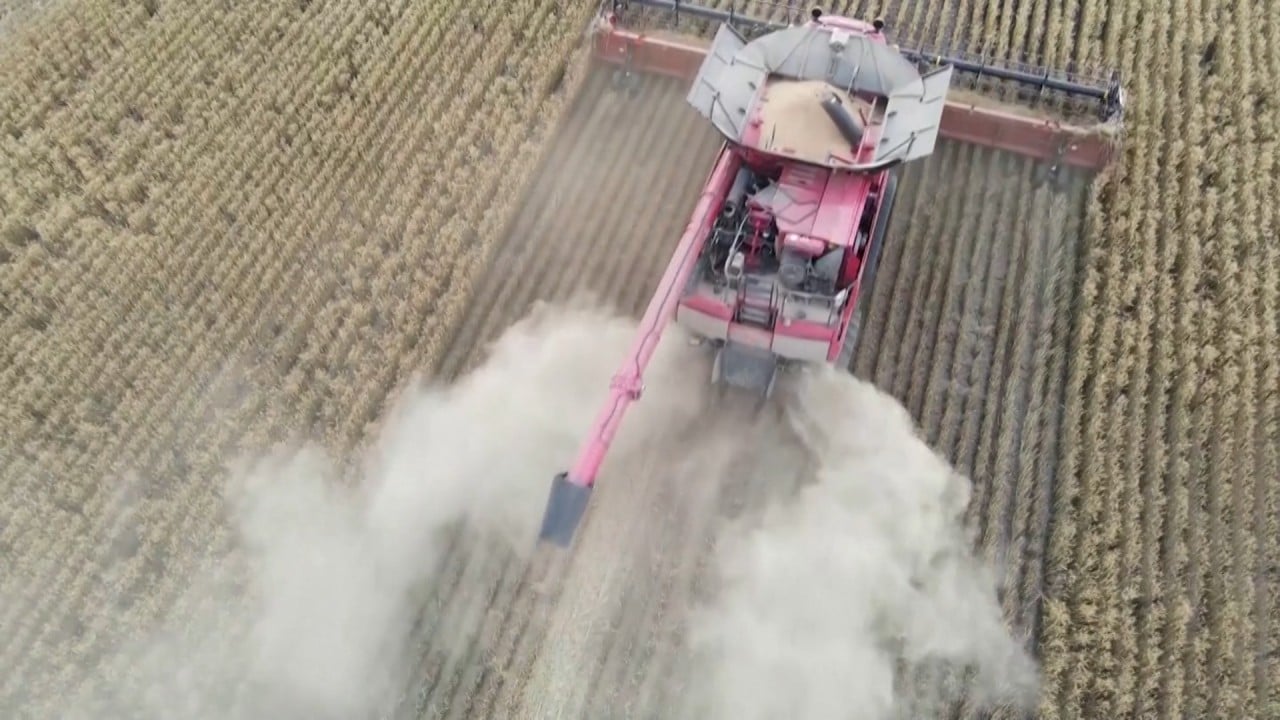
China-Australia relations: Canberra reached out to Beijing at ‘every possible level’, minister says
- Australian trade minister Simon Birmingham reiterated claims that the ‘ball is in China’s court’ in their ongoing trade dispute
- Canberra will not change positioning on human rights issues, after China said statements on issues like Hong Kong and Xinjiang are fraying ties
Australia has “reached out at every possible level and pathway in terms of writing to Beijing” in a bid to repair fraying tensions with China, but will not budge on its criticism of “international human rights obligations”, trade minister Simon Birmingham said on Wednesday.
The ball is in Beijing’s court in the sense that it is up to them as to whether they are willing to come to the table to have those talks too,
“I and other Australian government ministers are willing to take phone calls, engage with our counterparts, have meetings with our counterparts. We have expressed that very clearly – we’re willing to have that dialogue. The ball is in Beijing’s court in the sense that it is up to them as to whether they are willing to come to the table to have those talks too,” he said.
Speaking at a press conference in Beijing on Tuesday, Zhao also mentioned Australia’s banning Chinese companies from its 5G network and allegations of Chinese “intervention and infiltration” of its domestic affairs.
But Australia will not budge on many of these issues, Birmingham said.
“The point that I would make is, Australia’s position hasn’t changed in those areas. For decades, Australia has had a consistent position when it comes to international human rights obligations – that has at times been a point of tension in the Australia-China relationship, as it has with relations with other countries,” he added.
Australia’s Prime Minister Scott Morrison signed a defence pact with Japan on Tuesday, which will lead to more military cooperation in the South China Sea, where China’s sphere of influence has been growing.
In a joint statement that seemed to be aimed at Beijing, Morrison and Japanese counterpart Yoshihide Suga said that “trade should never be used as a tool to apply political pressure”.
In a move that will also no doubt catch China’s eye, an Australian-Chinese community leader and businessman is being investigated for money laundering.
Bundles of cash were found at the home of John Zhang, who is a former adviser to Shaoquett Moselmane, a member of parliament who is reported by the Australian Broadcasting Corporation to be “the prime suspect in an [Australian Federal Police-Australian Security Intelligence Organisation] investigation into Chinese foreign interference”. The new allegations in the investigation emerged on Wednesday after new documents, filed in the High Court last week, were published.

01:15
China-Australia trade: Beijing set to ban nearly US$400 million worth of Australian wheat imports
The trade actions have been technical in nature, but Chinese officials have implied on a number of occasions they can be resolved through political means.
China is Australia’s biggest trading partner, buying 39 per cent of Australia’s exports. Bilateral trade between the two countries is worth around US$171 billion, although the dispute has emphasised how reliant Australia is on China for merchandise trade.
In October, Chinese exports to Australia rose 16.62 per cent from a year earlier to US$5.25 billion, while imports from Australia rose 6.64 per cent to US$10.11 billion, according to data from China’s customs agency. However, this was before the latest rounds of trade actions came into effect.

